How many cups of coffee can you drink a day? Which is more caffeinated, hand brewed coffee or espresso?
Caffeine is good news for some people and nightmares for others! People who need caffeine will need to drink coffee, but the taste of coffee itself will also attract a group of gluttons who are not for the purpose of absorbing coffee, including people who are intolerant to caffeine. In particular, most of the guests who come to Qianjie come for the taste of coffee.
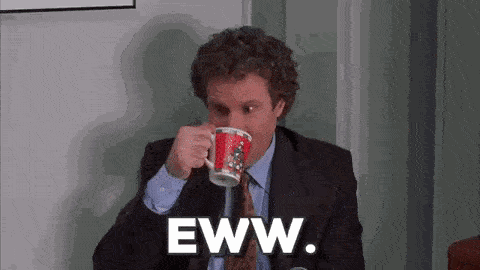
Many people think that coffee must contain a lot of caffeine, after all, it is called caffeine, it must come from coffee. But in fact, tea contains more than twice as much caffeine as coffee beans, which is the first subversive point.
Despite the contrast, coffee still contains caffeine, so how much caffeine is there in a cup of coffee and how many cups of coffee can we drink at most in a day?
How much caffeine does coffee beans contain?
The first thing we need to know is how much caffeine is contained in coffee beans, and different varieties of coffee beans have different caffeine content. For our common Arabica and Robusta coffee beans, the caffeine content of Arabica coffee beans is about 0.9-1.4%, and that of Robusta coffee beans is about 2-4% (mostly concentrated in about 3%). It can be seen that Robusta coffee beans contain more than twice as much caffeine as Arabica.
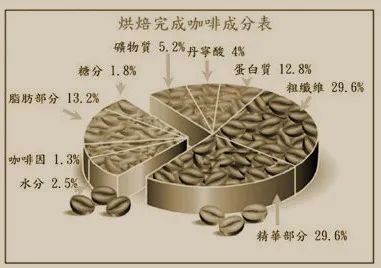
The amount of caffeine in coffee beans grown in different regions also varies slightly. Arabica coffee beans, for example, have about 1.37% of Arabica caffeine in Colombia, while Arabica caffeine in Sidamo, Ethiopia is only about 1.21%.
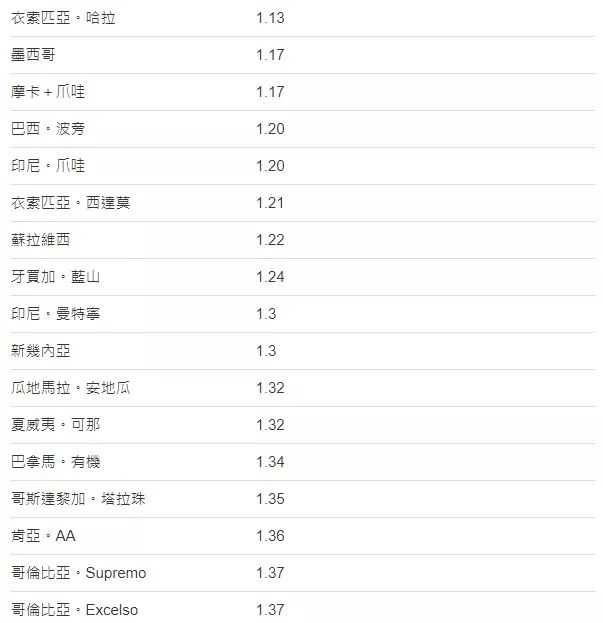
So how much caffeine is used to make a cup of coffee?
The amount of caffeine in a cup of coffee has a very significant relationship with how many beans are used. For example, if a cup of coffee is 15g, then the total content of caffeine (calculated on the basis of 1.3% Arabica caffeine) is 195mg. Please note that this 195mg is the total amount of caffeine contained in coffee beans, and the actual caffeine dissolved in water must be less than 195mg.
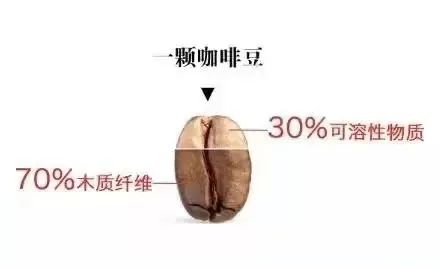
Here are two key points of knowledge. The first caffeine is a substance that is soluble in water, which is what we often call 30% soluble in water.
The second is that when we make coffee, we usually extract only 18-22% of the coffee substance, while the chemical formula of caffeine is "C8H10N4O2", which is a proper high-mass molecule. Qianjie said when sharing the knowledge of extraction that when we extract coffee, some small molecules will be extracted first, while some large molecules will take a little longer to extract.
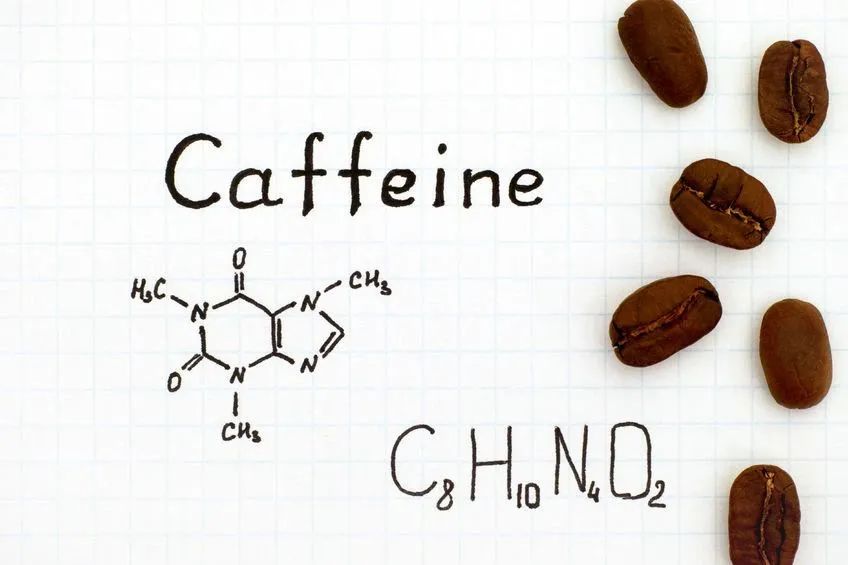
So, in fact, a cup of 15g coffee powder standard hand-brewed coffee, its caffeine content is 60-90mg.
So how does the caffeine content of a cup of coffee affect?
Here is a review of why tea contains twice as much caffeine as coffee beans, and why tea is not refreshing. The answer is that although tea is high in caffeine, it is released very slowly, resulting in less caffeine in the same amount of water than coffee.

If you put this theory back to the different ways of extracting coffee, you will find that the longer you soak, the higher the caffeine.
So the same coffee bean weighs the same weight:
Cold extract coffee > French press > hand coffee > espresso
A cup of cold-extracted coffee (200ml/20g beans) contains about 200mg caffeine
A cup of coffee (225ml/15g beans) contains about 120mg caffeine.
A cup of hand coffee (225ml/15g beans) contains about 60-90mg caffeine.
An espresso (30ml/15g bean) contains about 85mg caffeine.
Note: the total caffeine content of espresso-based American coffee, latte and cappuccino remains unchanged unless the formula is not an espresso.
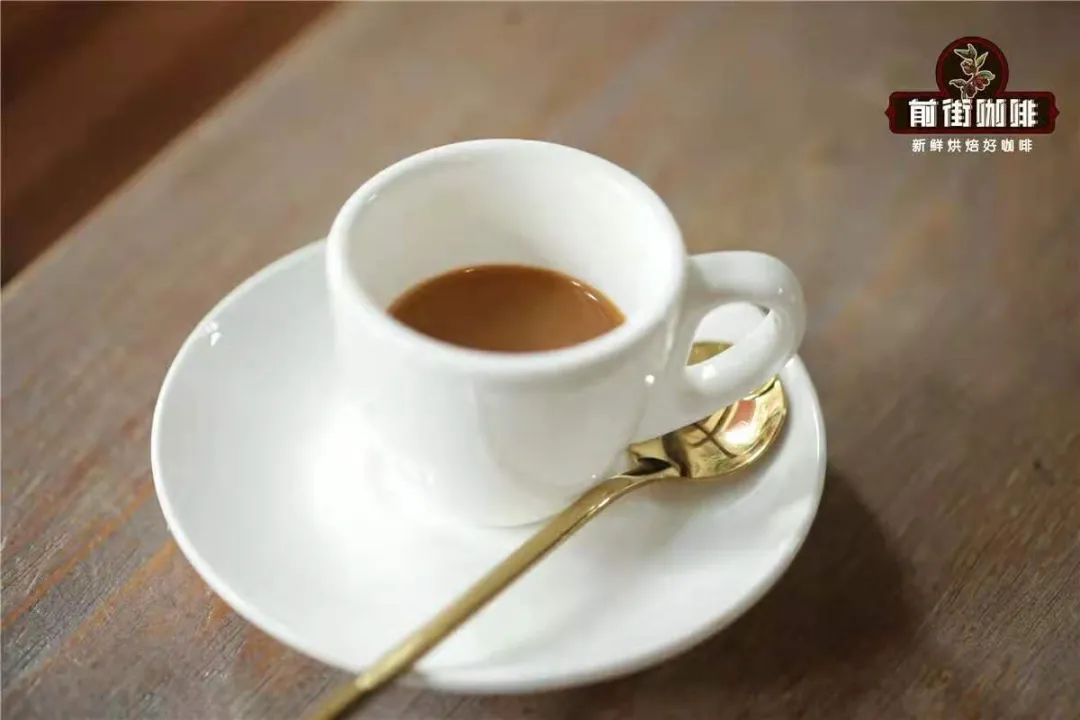
There is another question to ask, you said that espresso has the lowest caffeine content, so why did we decide that espresso is more refreshing? There are two ways to explain. First, the concentration of espresso is much higher than that of other coffees, which has a stimulating effect. "hanging strands" also have no caffeine and can also have a refreshing effect.
The second point is that some cafes are used to using Robusta and Arabica coffee beans, so that its own total caffeine content will become higher, not the same coffee beans will be meaningless.
So how many cups of coffee can I drink a day?
It is generally believed that the average adult male consumes no more caffeine than 400mg, while the United States and Europe recommend that adults consume no more caffeine than 300mg. There are basically no health problems at all intakes. If you take hand-brewed coffee (200ml/ cup) as an example, its caffeine content takes its median 75mg, and drinking 4-5 cups a day will not affect your health.
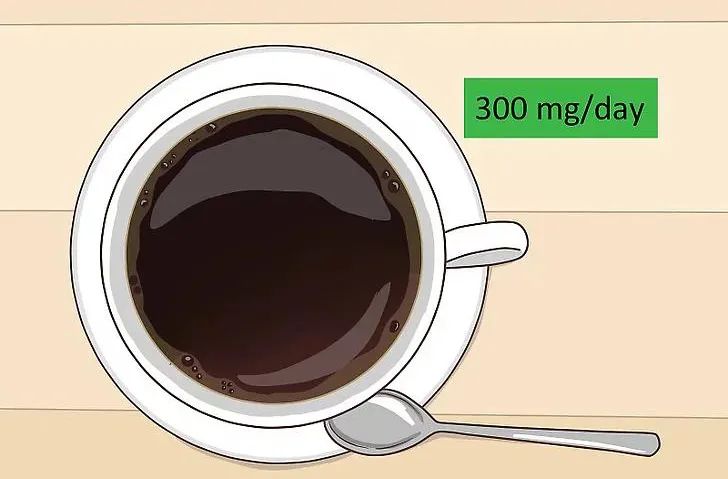
Important Notice :
前街咖啡 FrontStreet Coffee has moved to new addredd:
FrontStreet Coffee Address: 315,Donghua East Road,GuangZhou
Tel:020 38364473
- Prev
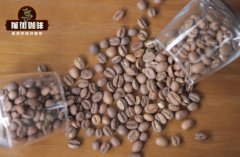
Hand-brewed coffee teaching-how does Ethiopia Yega Xuefei come out to taste good.
When it comes to boutique coffee beans, people always think of Yega Xuefei for the first time. Yejasuefi coffee beans for many friends, is the first step into the world of boutique coffee, but also because Yejasuefi coffee beans, for the first time feel that coffee is not only bitter. The Yega Xuefei producing area is located in Ethiopia and is originally a Sidamo producing area.
- Next

Barista skills-what are the common misunderstandings in making hand-brewed coffee? hand-brewed coffee teaching.
Hand-brewing coffee is a seemingly simple but actually very complicated task. In a short period of about 2 minutes, there is a huge accumulation of knowledge. For beginners, it is easy to get into misunderstandings. In this issue, baristas will take stock of the misunderstandings that are easy to occur. Many friends are attracted by the elegant movements of baristas to make coffee, which will lead to the belief that techniques
Related
- Beginners will see the "Coffee pull flower" guide!
- What is the difference between ice blog purified milk and ordinary milk coffee?
- Why is the Philippines the largest producer of crops in Liberia?
- For coffee extraction, should the fine powder be retained?
- How does extracted espresso fill pressed powder? How much strength does it take to press the powder?
- How to make jasmine cold extract coffee? Is the jasmine + latte good?
- Will this little toy really make the coffee taste better? How does Lily Drip affect coffee extraction?
- Will the action of slapping the filter cup also affect coffee extraction?
- What's the difference between powder-to-water ratio and powder-to-liquid ratio?
- What is the Ethiopian local species? What does it have to do with Heirloom native species?

